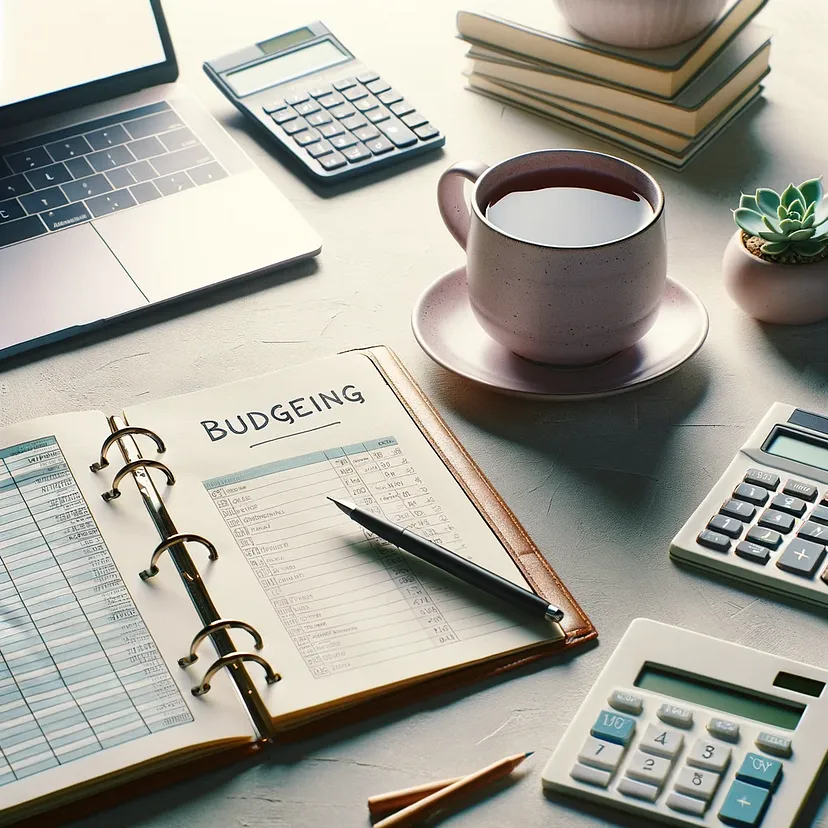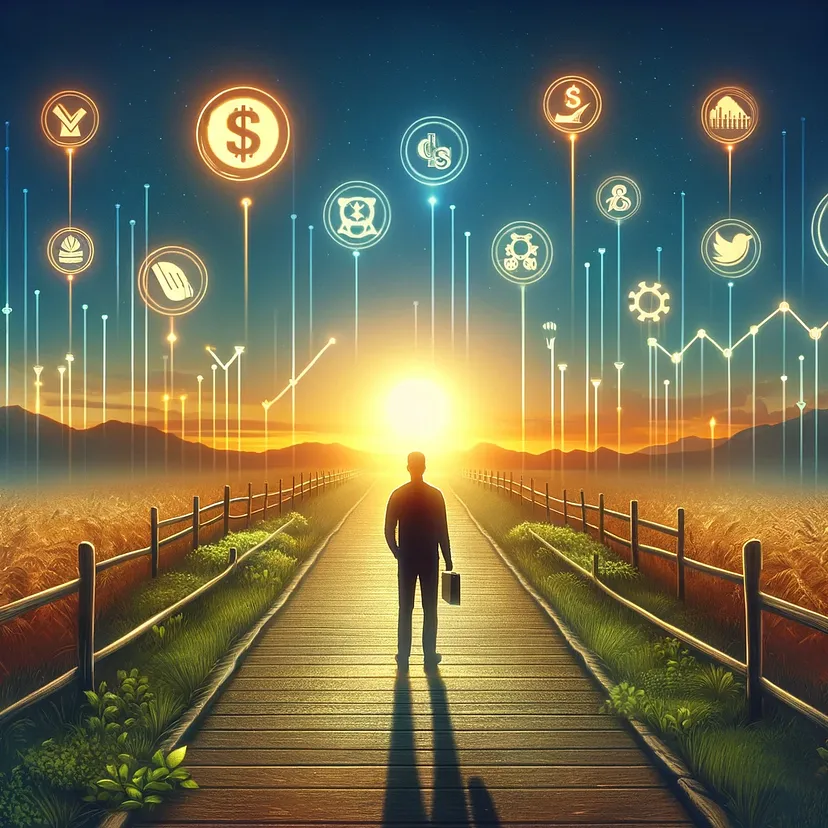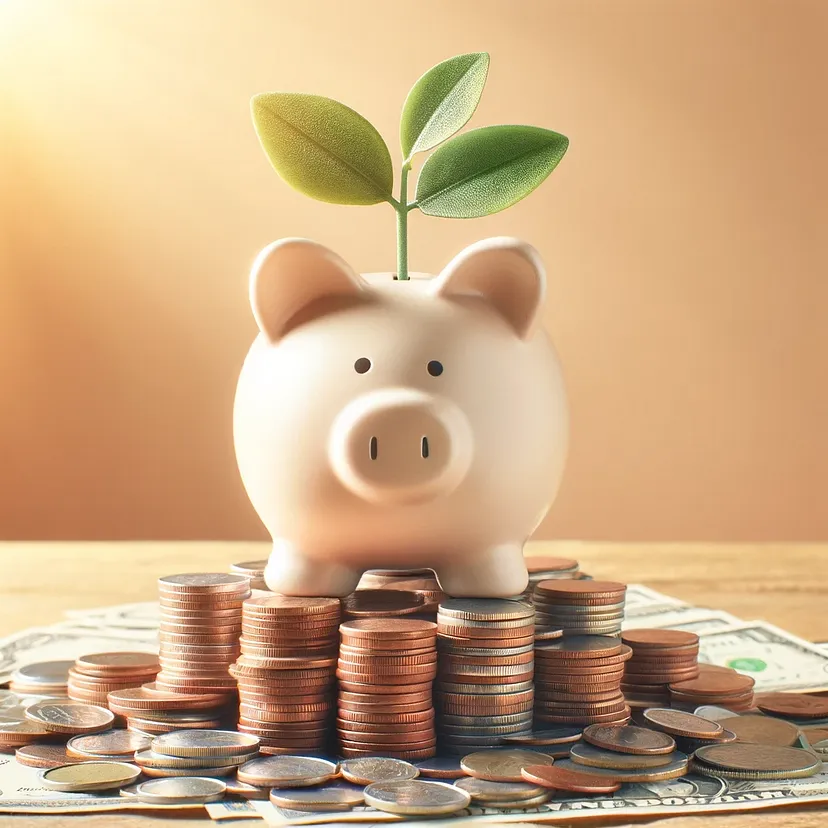Investment and Wealth Building
The Positive And Negative Effects Of Inflation: What To Know
The word “inflation” isn’t typically utilized in very cheerful contexts. You won’t see headlines reading “Consumers dance within the streets to rejoice rising inflation!” — unless it’s April Idiot’s Day, not less than. But there may be greater than just the negative effect of inflation.
Table of contents
- How does inflation impact daily life and how is it measured?
- The negative effect of inflation: 5 Problems
- The positive effect of inflation: 5 Outcomes
- Expert tip
- What negative effects of inflation will you notice immediately?
- What are the biggest negatives of inflation?
- What are the best things about inflation?
- Balance each the effect of inflation!
- Related articles on inflation
In truth, there are each positive and negative effects of inflation that you might notice. You most likely experience a noticeable negative effect of inflation each time you go to the food market or fill your gas tank.
So what’s an example of a positive effect of inflation? On the macro level, it may possibly function as a tool to rebalance the economy. On a private level, periods of upper inflation can actually be a possibility to construct wealth.
How does all of it work? Let’s study inflation and why it matters.
How does inflation impact each day life and the way is it measured?
In the only terms, inflation makes prices increase while your purchasing power decreases. As of late, if you happen to go into the dollar store with one dollar, you’ll leave empty-handed—because your dollar just isn’t value as much anymore.
Price changes
We measure inflation by taking a look at exactly how much prices change. Probably the most popular tools for this is named the Consumer Price Index, or CPI. Coordinated by the Bureau of Labor Statistics, the CPI looks at a group of just about 100,000 goods and services that represent typical consumer spending patterns.
If the typical price of apples increases nationwide, that’s only one item that gets factored in. Gas, airline fares, coffee, haircuts, insurance, and prescription medication are all a part of the CPI too.
And if you happen to’re like me and wondered in regards to the weirdest things included in the CPI, we’re not the one ones: that list includes sewing machines, olives, and pastry tarts. Discuss specific!
Inflation isn’t the one thing that could cause prices to rise, so the BLS also controls its data for changes in size, quantity, or quality.
Average inflation rate
All this data is combined to generate a mean inflation rate. Which means if the present inflation rate is 8%, it doesn’t mean that every thing you purchase might be 8% dearer than last 12 months. Some things is perhaps 20% more, and a few is perhaps 1% more, with an entire range of changes in between.
The negative effect of inflation: 5 Problems
Let’s jump into the bad news first and get it out of the best way! The negative consequences of inflation are way more noticeable on a private level because they have a tendency to make life harder. Listed below are five ways this may occur.
1. Loans get dearer
When you’re attempting to get a brand new loan, inflation is unquestionably not your friend. Rates of interest and inflation have an in depth relationship with each other. Typically, when one rises, so does the opposite.
Considered one of the first mechanisms behind this comes from the Federal Reserve. Also called the Fed, that is our central bank, and it’s answerable for setting national rates of interest.
During times of high inflation, people might panic and take a look at to spend as much money as possible before it loses more value. To stop this from getting uncontrolled, the Fed raises rates of interest to temporarily disincentivize spending and borrowing.
Translation for you? When you’re attempting to get a brand new mortgage, auto loan, personal loan, or other kinds of debt, it won’t come cheaply.
Ideas for getting a loan when inflation is high
When faced with this example, you will have three options:
- Wait to borrow until rates decrease
- Accept the present rate and plan to refinance your loan later
- Avoid taking out expensive loans by making extra cash on the side (e.g., to purchase a automobile in money or learn easy methods to save up for a house)
It’s as much as you to weigh each option with the small print of your individual situation.
2. Salaries don’t at all times rise proportionally
Theoretically, life wouldn’t change in any respect if everyone got a raise that matched inflation. If inflation is 8% and also you get a salary bump of 8%, you may still buy those apples you want without really feeling the worth increase.
Nonetheless, this shouldn’t be what actually happens.
For instance, in 2022, the inflation rate was around 9%, while wage growth trailed it at closer to 5%. Many employers don’t consider cost-of-living adjustments in any respect when determining raises, focusing solely on performance as an alternative.
In case your pay doesn’t rise to maintain up with inflation, that’s effectively the identical thing as a pay decrease. Under inflation, your purchasing power shrinks, and your paychecks may not stretch so far as they used to, which is a reasonably negative effect of inflation.
combat higher costs of living
Don’t be afraid to learn easy methods to ask for a raise on this scenario. If your organization refuses to contemplate inflation when calculating an appropriate pay increase, it could be in your best interests to seek out a brand new job as an alternative.
3. The price of essentials rises (rent, food, gas, etc.)
For the reason that whole definition of inflation is actually “things getting dearer,” this is perhaps essentially the most distinguished negative effect of inflation! During a period of high inflation, you may expect to observe your monthly expenses slowly creep upwards, even if you happen to haven’t modified your spending habits.
It won’t occur abruptly. When you’re a renter, your landlord might notify you of a rise. Then, you would possibly end up surprised by the entire on the food market and check your receipt to make certain there wasn’t a mistake.
You’ll exit to dinner together with your family and wonder how the bill added up so fast while you didn’t even order that much. On the best way home, you’ll stop for gas and wince as you replenish the tank (unless you’re a fellow Prius driver, not less than!). Medical bills, insurance, and prescriptions all add up in life under inflation too.
These increases make it so much harder to get monetary savings since it’s not like you may just stop eating or paying rent.
Don’t get discouraged! There are tricks you need to use to seek out out easy methods to go grocery shopping on a budget, easy methods to ask for a reduction, lower your automobile expense, and more.
4. Services develop into less inexpensive
There are a variety of services that don’t exactly count because the bare essentials but do enhance your life. When prices rise, these “nice-to-haves” are a chief goal for making personal budget cuts.
Possibly your cable or streaming bill is on the rise: you may switch to cable alternatives.
Do you pay for a weekly cleaner? Find the motivation to declutter so there’s less to wash.
When you’re used to getting your hair and nails done ceaselessly, make less frequent visits to the salon.
Some people might resolve to go to the dentist less ceaselessly, replace their glasses less often, or skip medical procedures that aren’t strictly crucial. But remember, health is your most precious asset. Living a healthy lifestyle and preventative care can find yourself paying for themselves.
5. Non-essential businesses suffer
When most of the people decides (or is forced) to curb their spending en masse, businesses take that hit.
Supporting businesses and being a business owner
This will likely impact you significantly if you happen to’re a business owner in a non-essential industry. Within the best-case scenario, you’ll have the opportunity to pivot in a more “inflation-proof” direction.
When you aren’t a business owner but enjoy supporting small businesses in your community, you might feel guilty about taking a break. And the truth is large corporations are inclined to have more power to weather these storms and keep prices lower.
Sadly, meaning in a period of sustained high inflation, you might watch Foremost Street shrink as local businesses shutter. In truth, over half of small business owners reported that inflation was substantially impacting them recently.
Ultimately, your financial health still must be your first priority. That said, while you need something, attempt to shop around and keep patronizing small businesses if the worth difference isn’t huge.
The positive effect of inflation: 5 Outcomes
Now, let’s turn to some more cheerful news. When you’ve made your plan to take care of the negative consequences of inflation, what are a number of the ways it may possibly work to your profit? Listed below are five.
1. Your current debt becomes a greater deal
Did you will have any debt before inflation rates began to rise? Congratulations: in practical terms, it’s almost like you will have less now.
Let’s assume you will have a mortgage with a hard and fast rate of interest and regular payment schedule. You’re still paying the identical amount you probably did before inflation, and it doesn’t matter that your dollars are value less now.
Inflation isn’t going to extend your payments because they’ve already been set for your complete term of the loan.
The identical goes for student loans, business loans, or some other sort of loan. So long as it’s a hard and fast amount with fixed interest (study variable vs. fixed rate loans), your current debt is effectively shielded against inflation.
2. Rates of interest on savings accounts increase
When the Fed raises rates of interest, it doesn’t just affect borrowing rates. It increases savings rates too!
Thus, higher rates of interest can qualify as positive and negative effects of inflation.
Now, it continues to be as much as each individual bank how much interest they need to charge for loans or pay for savings. But banks that need to stay competitive normally stay in an analogous range.
Varieties of accounts
There are several several types of interest bearing accounts. Some, like most checking and a few standard saving accounts, barely pay any interest.
Keeping your money in any low-interest account is a foul idea during high inflation. Inflation slowly erodes the worth of your money, so you must select an account that pays enough interest to assist counter-balance that.
While you’re on the lookout for a spot to maintain long-term savings like an emergency fund, high-yield savings accounts are the approach to go. Online banks offer the best rates of interest since they’ve lower operating costs than brick-and-mortar establishments.
When you still want access to a physical bank, you may keep your local bank accounts and likewise open a brand new high-yield savings account online. Move your long-term savings there so inflation can’t hurt it as much.
Savings rates will often still be lower than inflation, so it’s not perfect, but in case your account pays 4% APY while annual inflation is at 6%, you are almost breaking even.
3. Unemployment drops when inflation rises
Inflation and unemployment traditionally have an inverse relationship. When individuals are employed, they spend, which drives inflation.
Overall, higher rates of employment are a positive thing. So long as you’re not in an inflation-vulnerable industry, you’ll have less worry about losing your job. Alternatively, finding a brand new job can develop into harder when there are fewer openings.
Be mindful the employment landscape can quickly change if an inflationary period (and the next response to it) triggers a recession. These economic slowdowns include layoffs and better unemployment. Periods of high inflation is perhaps an excellent time to begin training for a recession-proof job.
4. Market chaos can present investing opportunities
Economic instability will be scary, but if you happen to keep a cool head about it, it’s also possible to view it as a possibility. Inflation affects savings and investments in various ways. Corporations that handle inflation well may even see their stocks rise. Others may lose value and even go bankrupt.
Many long-term thinkers prefer investing in stocks when the market is unstable or low. The thought is that eventually, things should get back to normal, and your portfolio will bounce back. Some individual corporations and stocks may fail, but if you happen to start investing with index funds, you’re diversifying to guard your investments against that risk.
Beyond stocks, investments in real estate and commodities are inclined to thrive under inflation. As their prices rise, so do your profits. This can be a big positive effect of inflation for anyone who owns property or has other assets increasing in value.
5. Inflation helps prevent deflation
As tough as inflation is to take care of, deflation comes with problems with its own. Deflation is the precise opposite of inflation: prices of products and services decrease, and money’s purchasing power increases.
While this may occasionally sound attractive on the face of it, deflation generally signals an economic downturn. Periods of rapid or sustained deflation can result in negative consequences like higher unemployment, lower wages, and more.
Since there are positive and negative effects of inflation and deflation, it’s necessary for them each to exist and balance one another. When either one looks as if it’s getting uncontrolled, the nation’s central banks aim to implement monetary policy that reins them back in. It’s a fragile balance!
Expert tip
Although many things develop into more costly when inflation is high, there are also good things, like higher rates of interest and investing opportunities. The bottom line is to determine a approach to make the present financial situation be just right for you, no matter whether inflation is up or down.
Look for tactics to extend your earnings and make the very best spending selections possible, working with inflation as an alternative of against it.
What negative effects of inflation will you notice immediately?
A number of the effects of inflation are very obvious, and one which you will likely notice instantly is the associated fee of products and services. It is easy to see the worth increase and see the way it affects your budget.
What are the largest negatives of inflation?
Your purchasing costs rise at the same time as your salary buys you less. As well as, loans are more costly, and small businesses may experience problems.
What are the very best things about inflation?
Debt and rates of interest provide higher opportunities. Also, fewer people find themselves unemployed. Along with all this, you might find probabilities for savings and investment during a time like this.
Above all, inflation helps to maintain things balanced in order that there’s not an excessive amount of deflation or inflation.
Related articles on inflation
Enjoyed this text on the consequences of inflation? Here is a few related content:
- How do rates of interest affect inflation
- The impact of inflation on savings and investments
- The consequences of inflation on business and why it matters to you
- avoid lifestyle inflation: 9 key ways
You’ll be able to balance each negative effect of inflation with the positive ones by making a plan!
How will you and your loved ones manage the results of inflation, like higher prices and rates of interest? Do you understand more about easy methods to prepare for a recession? Is there a very positive effect of inflation you think that you need to use to your advantage?
Check out this CGF live stream replay to listen to Bola and Yazmir from Clever Girl Finance share their advice for making financial decisions during times of high inflation and recessions!
The post The Positive And Negative Effects Of Inflation: What To Know appeared first on Clever Girl Finance.





